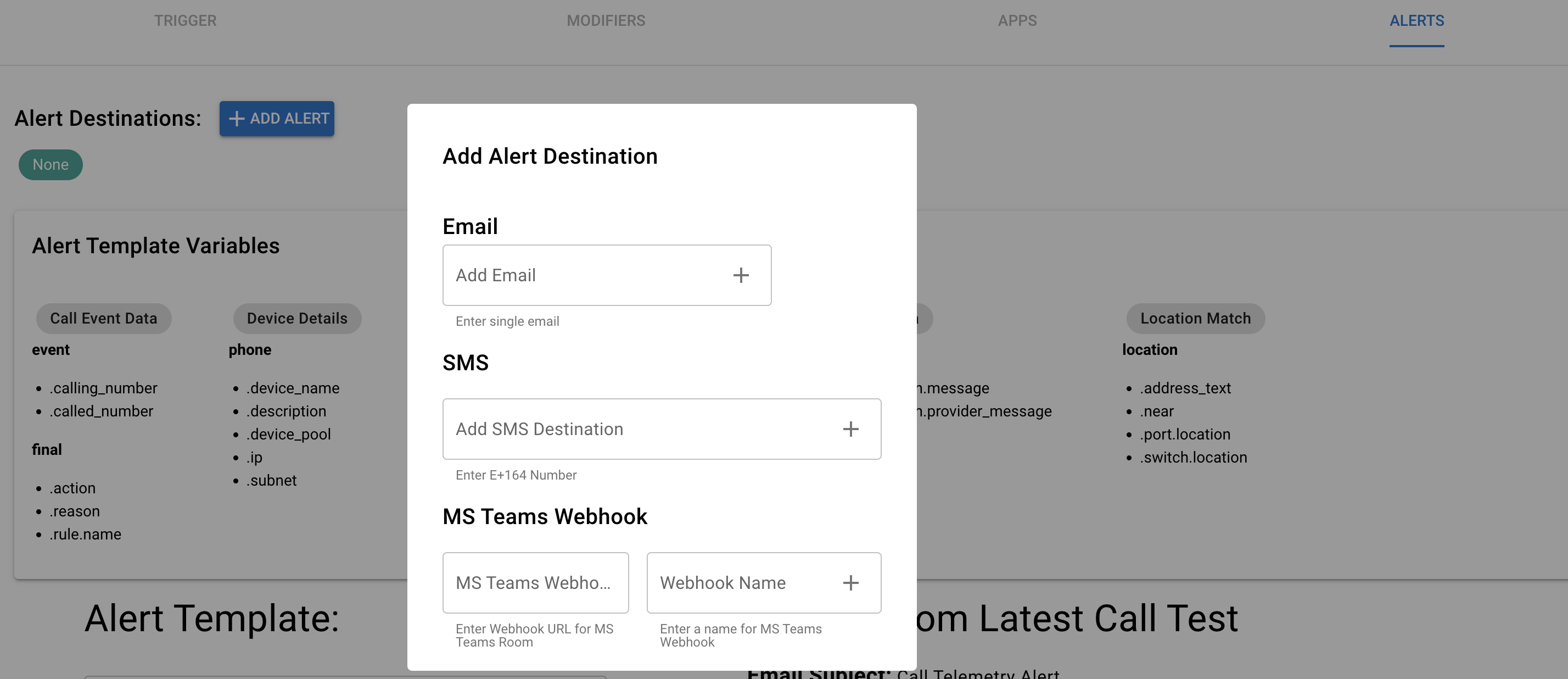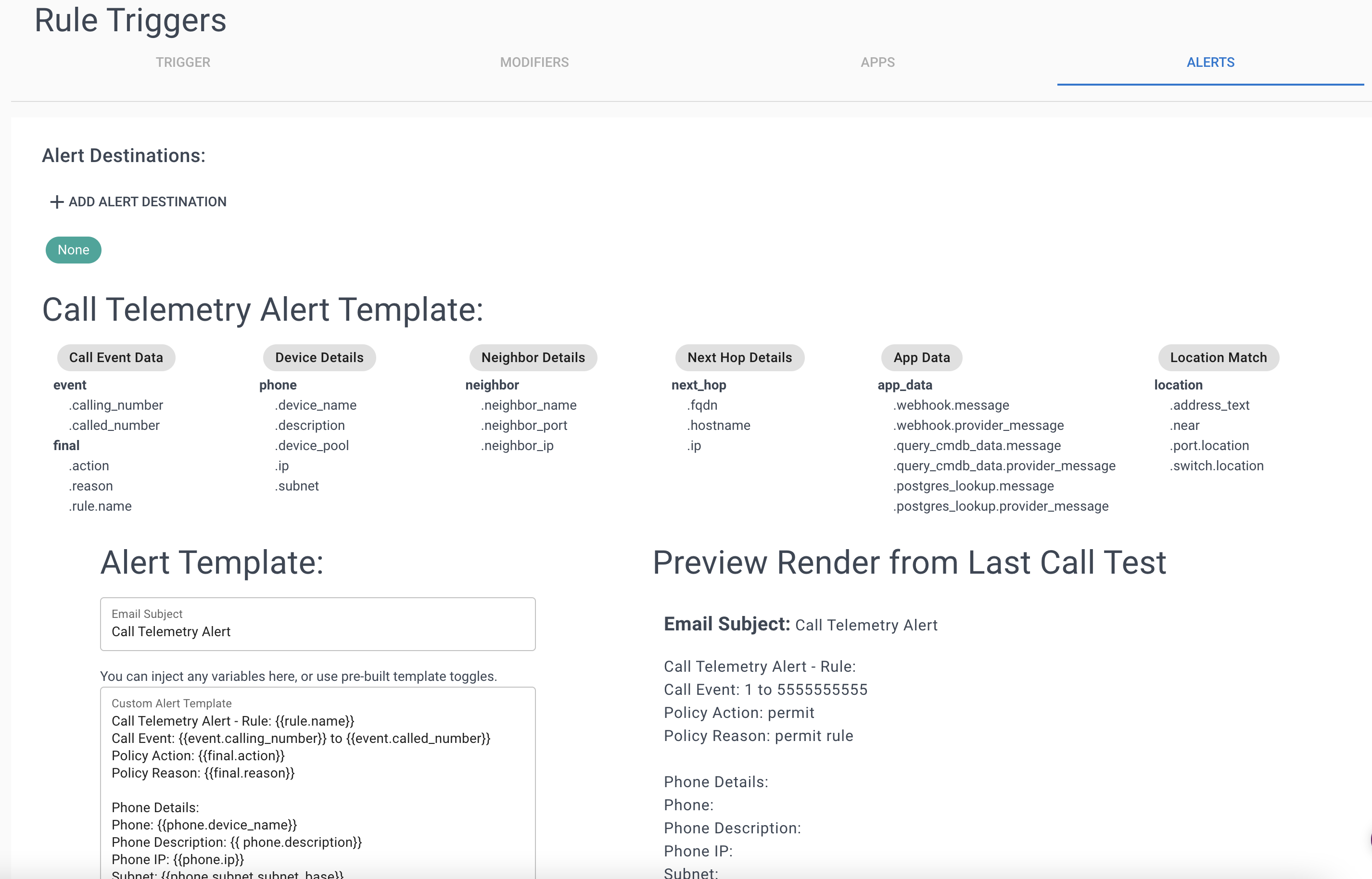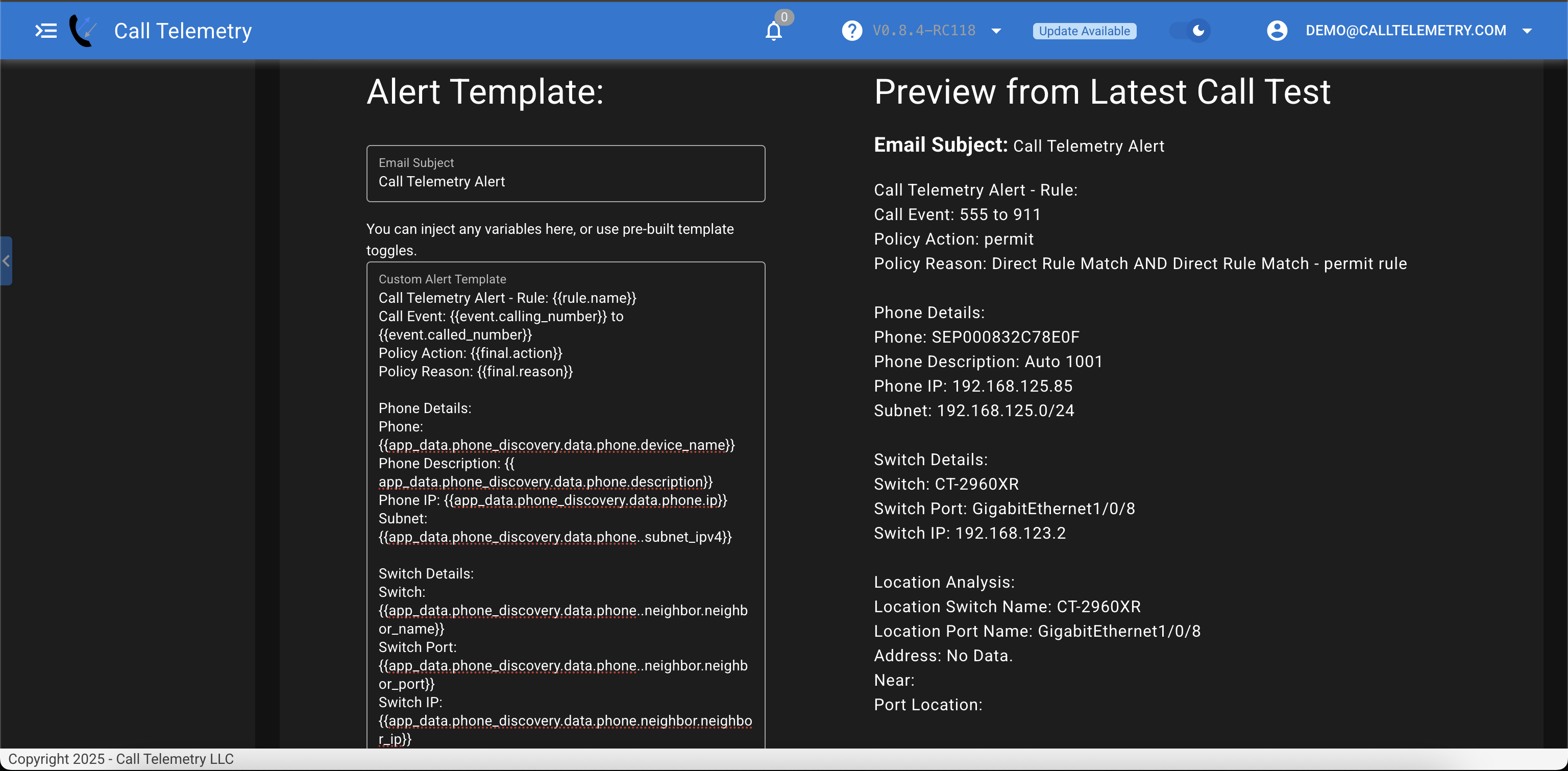Appearance
Rule Alerts and Alert Templates
Rules support a complete alert template with full variable support, as well as a list of alerts. Alerts are triggered when the rule is matched. Alerts can be sent to email, SMS, MS Teams through native integrations, or via webhooks to any Alert API.
Feature Requirements
Call Alert and Notifications require the following features to be enabled:
- Call Telemetry Appliance 0.7.0 or higher
- Call Telemetry Premium License
- Cisco Callmanager 8.5 or higher
- Configured External Call Control Inspection - add a Policy, and apply it to your 911 Route Pattern or Translation Pattern.
Alert Destinations
Rule Alerts can be sent to multiple destinations. The following alert types are supported natively on the rule page.
- Email via SMTP
- SMS via Twilio
- MS Teams via Integration or Channel Webhook
Or you can chain Alert Apps in order, to send alerts via Apps. Alert apps include Email, Twilio SMS, and Webex Teams. If you need a custom alert app, please email [email protected]

TIP
You can also use the Webhook App to send a templated payload trigger to any JSON API.
Composing Alert Templates
Apps run sequentially and compose a global context for the alert template engine. The final output of the alert template is sent to all alert destinations. Let's say we create a flow like this:
- Discovery App - discovers phone, switch, subnet, and location data
- ServiceNow App - looks up the Asset in ServiceNow
- Subnet CSV App - looks up the subnet in a CSV list as remote or local.
You could reference all this information to displatch a rich alerts by referencing the variables from each app.
Alert Templates can contain variables that are replaced with the actual values at runtime. Variables are enclosed in double curly braces, like this: {{variable_name}}.
Each Policy App has it's own unique variables from the payloads processed, and a standard output message. Some Apps use this for success/failure, and some apps use this as their final output.
You can filter out any failure by using the toggle at the bottom, to exclude rendering any Messages output that may confuse a recipient with diagnostic information.

Previewing an Alert Template
Complex Alert templates can be difficult to validate without valid data. To help you build those complex alerts, the Preview window automatically renders the alert based on the last Call Debug Test data.
The example below shows a preview of an alert rendered from the last call tests data. It shows a customized 911 alert, with the calling number, and the location of the calling phone, which includes switch, port, subnet, and other location data.
You can discover detailed emeregency dispatable locations and compose rich 911 alerts using realtime data with our 911 Location Discovery Sources for your emergency response notications.

Alert Variables
Alerts can contain variables that are replaced with the actual values at runtime. Variables are enclosed in double curly braces, like this: {{variable}} or {{parent_object.variable}} This tree allows you to visualize the variables available to you in the alert template. Let's say you created a Webhook App to call an external API, named "webhook". The data from that webhook would be added to teh context of the app run. Each App data is made availabe using a slub based on the app name, for example the webhook app will be available as {{app_data.webhook_slug.data}}. So if your webhook returned a JSON payload like this:
json
{
"status": "success",
"user": {
"id": 123,
"name": "John Doe"
}
}You could access the user name in your alert template like this: {{app_data.webhook.user.name}}.

Built-in Variables
The following variables are supported natively from the call events, and are available in all alerts.
- Call Event Data
Discovery App Variables
The following variables are supported natively from the Discovery App, and are available in all alerts ONLY if the Phone Discovery App is enabled:
- Location
- Switch Device Details
- Switch Neighbor Details
- Layer 3 Next Hop Details (via ICMP Traceroute)
Custom App Workflows
Each App contains it's own unique variables from the payloads processed, and a standard output message for the alert template engine. For example the Webhook App will hit an API, and expose the entire response dictionary as a variable for use in the alert template.
- Webhook App
- Spam Reputation App
- Subnet CSV Lookup
- SOAP API App
- PostgreSQL Lookup App
- Send to Twilio
- Send to Webex Teams
- Send to MS Teams
- Send to Email
